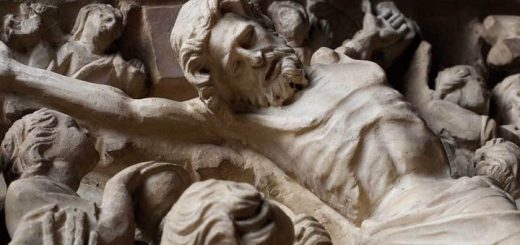The role of women in the Bible and in the Catholic church today
Article taken from Castello7, weekly letter to parishioners, 26th year, n. 20, of 12 March 2017
In the Old Testament the role of women was above all that of wife and mother. A role that entrusted her with the serious and honorable task of supervising the home and raising her children at a young age. And although it was considered “husband's ornament“, however, unlike the surrounding peoples, it was recognized as having a certain independence and personal rights. And even if she had no sacred role in the cult of the temple and the synagogue, gigantic figures of women nevertheless emerge in history both for their personal stature and for their faith in the God of Israel and for the deeds performed, such as Ruth, Deborah, Judith, Esther, Huldah…
As time went by, however, especially in late Judaism, the female figure lost more and more importance, so much so that in the daily prayer of the good Israelite it is said: "Blessed are you, our God, for having made me neither pagan, nor woman, nor ignorant” and the woman says: “Praised be you, O Lord, who created me according to your will."
Jesus and women
In the New Testament we notice, especially in the writings closest to the story of Jesus, a change in the attitude towards women as clearly shown by the episode of the adulteress, which we read in the Gospel of John (John 8.1-11).
Jesus spends time with the women, gives them teachings regardless of the rabbinic prescriptions that prohibited it (Luke 10.39; John 4.27) and addresses them with the concern with which he searches for the "little ones of the kingdom."
He recognizes equal dignity between man and woman (see Luke 13.16) and it is to a woman, and a foreign one at that, that he gives the greatest praise for her faith (Matthew 15.28).
Even in the sayings on marriage, Jesus ignores the difference between man and woman with regards to fidelity, referring expressly to the story of Genesis 1 (Mk. 10,2-12).
Women are the privileged recipients of the apparitions of the risen Lord and the first witnesses of the resurrection (Luke 24, 1-9).
Women and the first Christian community
In the first church women occupied a particular place from the beginning both because the first church gathered in the house of Mary, mother of John Mark (Acts 12, 12), and of other women who are disciples of Christ like the males because they are marked by same baptism and filled with the same Spirit.
The apostle Paul, despite some limitations that seem more influenced by the need not to scandalize, also recognizes in women the charism of prophecy (1 Cor. 11.5) and in the letter to the Romans Paul recommends «Phoebe, our sister, “deacon” (so in the Greek text) of the Church of Cenchrea"(16,1).
And in the church today?
In today's Church – said Father Arturo Sosa, new general superior of the Jesuits – «there are different ideas about the role women should have. As Pope Francis said, women have a fundamental role in defending the faith, they are a source of strength in society, they teach. The role of women in the family must be promoted, but their contribution in the Church and in public life must also be promoted".
Ideas that draw strength from Genesis, where God created man and woman in his image, and from the relationship that Jesus had with women.
A difficult journey
"Pope Francis has been quite explicit in saying that women must take on roles of responsibility even where decisions are made in the Church. She also created a commission on the female diaconate, to explore its history and role".
But «if we are honest we know that the fullness of women's participation in the Church has not yet arrived», added Father Sosa. «Such inclusion will lead… to working with greater commitment to develop a theology of women: I would add, an ecclesiology that includes women in the roles where they should be involved… The inclusion of women in the Church is also a creative way to promote the changes it needs".
A new ecclesiology is needed
"A theology and ecclesiology that involves women more can change the image, concept and structure of the Church, can push the Church to increasingly be the people of God, as the Second Vatican Council established. The creativity of women can open new ways to be a Christian community of disciples, men and women who are together witnesses and preachers of the good news.
By revitalizing the Council and bringing the poor to the center of attention, Pope Francis is giving women's voices a better chance of being heard. In this effort against clericalism, and the elitism and sexism that go with it, the Pope seeks to open the Church to voices outside the Vatican. The opposite of clericalism is collaboration".
(Father Sosa's words were reported by "la Stampa" on March 8, 2017)






